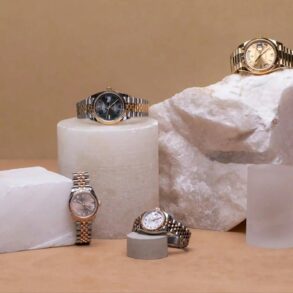Prada may be globally known for its luxury leather handbags and other high-end accessories, but its next fashion line may take it to the stratosphere.
The Italian luxury fashion house announced this week that it’s partnering with Texas-based startup Axiom Space to help design spacesuits for astronauts to wear to the moon. The spacesuits will be worn during NASA’s upcoming Artemis III lunar mission, which will mark a historic return to the moon for Americans after the last astronauts set foot on its surface more than 50 years ago.
The two companies revealed the partnership Wednesday in a joint media release.
“Prada’s technical expertise with raw materials, manufacturing techniques, and innovative design concepts will bring advanced technologies instrumental in ensuring not only the comfort of astronauts on the lunar surface, but also the much-needed human factors considerations absent from legacy spacesuits,” Axiom Space CEO Michael Suffredini said in a statement.
Lorenzo Bertelli, Prada Group Marketing Director, said in a statement that Prada is “honored to be a part of this historic mission with Axiom Space.”
“Our decades of experimentation, cutting-edge technology and design know-how … will now be applied to the design of a spacesuit for the Artemis era,” Bertelli said in the statement. “It is a true celebration of the power of human creativity and innovation to advance civilization.”

Space junk fine:US issues first-ever space debris penalty against Dish Network in ‘breakthrough settlement’
What are the Artemis missions?
NASA’s Artemis missions represent the space agency’s renewed interest in the moon decades after it last put two astronauts on the lunar surface in 1972.
Next year, four astronauts will board a capsule for the Artemis II mission that will take them on a 10-day journey spanning 600,000 miles to the moon and back. Though Artemis II will be the first crewed lunar mission in decades, its members won’t be landing on the moon.
That will happen in 2025 when another crew embarks on the Artemis III mission as they endeavor to become the first Americans on the moon’s surface since the last Apollo mission.
The Artemis III crew is intended to land at the moon’s south polar region, where they will stay for about one week. Ultimately, NASA aims to establish a permanent human presence on and around the moon as it prepares for future missions to Mars.
Though the names of the crew members for Artemis III have not been revealed, NASA has said the crew will include the first woman and first person of color to land on the moon.

Brian May:Queen guitarist helps NASA return its 1st asteroid sample to Earth
Suits to protect astronauts on the moon
NASA announced in March that Axiom Space, which is based in Houston, was awarded the contract to lead the development on the modernized spacesuits.
Axiom Space’s agreement with Prada now means the fashion house will play a role in the design process, helping to ensure the suits and their materials are comfortable and protective against the elements of space and the lunar surface, according to the joint statement.
Though it’s unclear when the final product will be unveiled, the suits are intended to feature advanced capabilities for space exploration unheard of during the former 17 Apollo missions. The suits will have increased flexibility, greater ability to withstand harsh environments and special tools for exploration and scientific study.
“Using innovative technologies and design, these spacesuits will enable greater exploration of the lunar surface than ever before,” the joint statement read. “The development of these next-generation spacesuits is a significant milestone in furthering space exploration, and enabling a deeper understanding of the Moon, the solar system, and beyond.”
Record spaceflight:Astronaut Frank Rubio spent a record 371 days in space. The trip was planned to be 6 months
Eric Lagatta covers breaking and trending news for USA TODAY. Reach him at elagatta@gannett.com
This post was originally published on this site be sure to check out more of their content.




